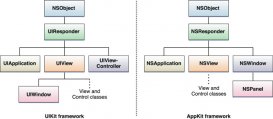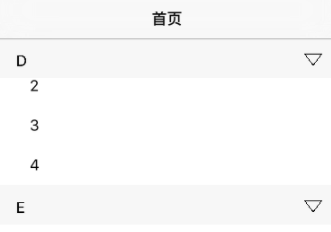本文实例为大家分享了iOS实现音乐播放器的具体代码,供大家参考,具体内容如下
audio_queue.cpp
|
1
2
3
4
5
6
7
8
9
10
11
12
13
14
15
16
17
18
19
20
21
22
23
24
25
26
27
28
29
30
31
32
33
34
35
36
37
38
39
40
41
42
43
44
45
46
47
48
49
50
51
52
53
54
55
56
57
58
59
60
61
62
63
64
65
66
67
68
69
70
71
72
73
74
75
76
77
78
79
80
81
82
83
84
85
86
87
88
89
90
91
92
93
94
95
96
97
98
99
100
101
102
103
104
105
106
107
108
109
110
111
112
113
114
115
116
117
118
119
120
121
122
123
124
125
126
127
128
129
130
131
132
133
134
135
136
137
138
139
140
141
142
143
144
145
146
147
148
149
150
151
152
153
154
155
156
157
158
159
160
161
162
163
164
165
166
167
168
169
170
171
172
173
174
175
176
177
178
179
180
181
182
183
184
185
186
187
188
189
190
191
192
193
194
195
196
197
198
199
200
201
202
203
204
205
206
207
208
209
210
211
212
213
214
215
216
217
218
219
220
221
222
223
224
225
226
227
228
229
230
231
232
233
234
235
236
237
238
239
240
241
242
243
244
245
246
247
248
249
250
251
252
253
254
255
256
257
258
259
260
261
262
263
264
265
266
267
268
269
270
271
272
273
274
275
276
277
278
279
280
281
282
283
284
285
286
287
288
289
290
291
292
293
294
295
296
297
298
299
300
301
302
303
304
305
306
307
308
309
310
311
312
313
314
315
316
317
318
319
320
321
322
323
324
325
326
327
328
329
330
331
332
333
334
335
336
337
338
339
340
341
342
343
344
345
346
347
348
349
350
351
352
353
354
355
356
357
358
359
360
361
362
363
364
365
366
367
368
369
370
371
372
373
374
375
376
377
378
379
380
381
382
383
384
385
386
387
388
389
390
391
392
393
394
395
396
397
398
399
400
401
402
403
404
405
406
407
408
409
410
411
412
413
414
415
416
417
418
419
420
421
422
423
424
425
426
427
428
429
430
431
432
433
434
435
436
437
438
439
440
441
442
443
444
445
446
447
448
449
450
451
452
453
454
455
456
457
458
459
460
461
462
463
464
465
466
467
468
469
470
471
472
473
474
475
476
477
478
479
480
481
482
483
484
485
486
487
488
489
490
491
492
493
494
495
496
497
498
499
500
501
502
503
504
505
506
507
508
509
510
511
512
513
514
515
516
517
518
519
520
521
522
523
524
525
526
527
528
529
530
531
532
533
534
535
536
537
538
539
540
541
542
543
544
545
546
547
548
549
550
551
552
553
554
555
556
557
558
559
560
561
562
563
564
565
566
567
568
569
570
571
572
573
574
575
576
|
/* * This file is part of the FreeStreamer project, * (C)Copyright 2011-2013 Matias Muhonen. * See the file ''LICENSE'' for using the code. * * Part of the code in this file has been rewritten from * the AudioFileStreamExample / afsclient.cpp * example, Copyright © 2007 Apple Inc. * * The threadless playback has been adapted from * Alex Crichton's AudioStreamer. */#include "audio_queue.h"#include <cassert>//#define AQ_DEBUG 1#if !defined (AQ_DEBUG) #define AQ_TRACE(...) do {} while (0)#else #define AQ_TRACE(...) printf(__VA_ARGS__)#endifnamespace astreamer { typedef struct queued_packet { AudioStreamPacketDescription desc; struct queued_packet *next; char data[];} queued_packet_t; /* public */ Audio_Queue::Audio_Queue() : m_delegate(0), m_state(IDLE), m_outAQ(0), m_fillBufferIndex(0), m_bytesFilled(0), m_packetsFilled(0), m_buffersUsed(0), m_processedPacketsSizeTotal(0), m_processedPacketsCount(0), m_audioQueueStarted(false), m_waitingOnBuffer(false), m_queuedHead(0), m_queuedTail(0), m_lastError(noErr){ for (size_t i=0; i < AQ_BUFFERS; i++) { m_bufferInUse[i] = false; }} Audio_Queue::~Audio_Queue(){ stop(true); cleanup();} bool Audio_Queue::initialized(){ return (m_outAQ != 0);} void Audio_Queue::start(){ // start the queue if it has not been started already if (m_audioQueueStarted) { return; } OSStatus err = AudioQueueStart(m_outAQ, NULL); if (!err) { m_audioQueueStarted = true; m_lastError = noErr; } else { AQ_TRACE("%s: AudioQueueStart failed!\n", __PRETTY_FUNCTION__); m_lastError = err; }} void Audio_Queue::pause(){ if (m_state == RUNNING) { if (AudioQueuePause(m_outAQ) != 0) { AQ_TRACE("%s: AudioQueuePause failed!\n", __PRETTY_FUNCTION__); } setState(PAUSED); } else if (m_state == PAUSED) { AudioQueueStart(m_outAQ, NULL); setState(RUNNING); }} void Audio_Queue::stop(){ stop(true);}void Audio_Queue::stop(bool stopImmediately){ if (!m_audioQueueStarted) { AQ_TRACE("%s: audio queue already stopped, return!\n", __PRETTY_FUNCTION__); return; } m_audioQueueStarted = false; AQ_TRACE("%s: enter\n", __PRETTY_FUNCTION__); if (AudioQueueFlush(m_outAQ) != 0) { AQ_TRACE("%s: AudioQueueFlush failed!\n", __PRETTY_FUNCTION__); } if (stopImmediately) { AudioQueueRemovePropertyListener(m_outAQ, kAudioQueueProperty_IsRunning, audioQueueIsRunningCallback, this); } if (AudioQueueStop(m_outAQ, stopImmediately) != 0) { AQ_TRACE("%s: AudioQueueStop failed!\n", __PRETTY_FUNCTION__); } if (stopImmediately) { setState(IDLE); } AQ_TRACE("%s: leave\n", __PRETTY_FUNCTION__);} double Audio_Queue::packetDuration(){ return m_streamDesc.mFramesPerPacket / m_streamDesc.mSampleRate;} unsigned Audio_Queue::timePlayedInSeconds(){ unsigned timePlayed = 0; AudioTimeStamp queueTime; Boolean discontinuity; OSStatus err = AudioQueueGetCurrentTime(m_outAQ, NULL, &queueTime, &discontinuity); if (err) { goto out; } timePlayed = queueTime.mSampleTime / m_streamDesc.mSampleRate; out: return timePlayed;} unsigned Audio_Queue::bitrate(){ unsigned bitrate = 0; double packetDuration = this->packetDuration(); if (packetDuration > 0 && m_processedPacketsCount > 50) { double averagePacketByteSize = m_processedPacketsSizeTotal / m_processedPacketsCount; bitrate = 8 * averagePacketByteSize / packetDuration; } return bitrate;}void Audio_Queue::handlePropertyChange(AudioFileStreamID inAudioFileStream, AudioFileStreamPropertyID inPropertyID, UInt32 *ioFlags){ OSStatus err = noErr; AQ_TRACE("found property '%lu%lu%lu%lu'\n", (inPropertyID>>24)&255, (inPropertyID>>16)&255, (inPropertyID>>8)&255, inPropertyID&255); switch (inPropertyID) { case kAudioFileStreamProperty_ReadyToProducePackets: { cleanup(); // the file stream parser is now ready to produce audio packets. // get the stream format. memset(&m_streamDesc, 0, sizeof(m_streamDesc)); UInt32 asbdSize = sizeof(m_streamDesc); err = AudioFileStreamGetProperty(inAudioFileStream, kAudioFileStreamProperty_DataFormat, &asbdSize, &m_streamDesc); if (err) { AQ_TRACE("%s: error in kAudioFileStreamProperty_DataFormat\n", __PRETTY_FUNCTION__); m_lastError = err; break; } // create the audio queue err = AudioQueueNewOutput(&m_streamDesc, audioQueueOutputCallback, this, CFRunLoopGetCurrent(), NULL, 0, &m_outAQ); if (err) { AQ_TRACE("%s: error in AudioQueueNewOutput\n", __PRETTY_FUNCTION__); if (m_delegate) { m_delegate->audioQueueInitializationFailed(); } m_lastError = err; break; } // allocate audio queue buffers for (unsigned int i = 0; i < AQ_BUFFERS; ++i) { err = AudioQueueAllocateBuffer(m_outAQ, AQ_BUFSIZ, &m_audioQueueBuffer[i]); if (err) { /* If allocating the buffers failed, everything else will fail, too. * Dispose the queue so that we can later on detect that this * queue in fact has not been initialized. */ AQ_TRACE("%s: error in AudioQueueAllocateBuffer\n", __PRETTY_FUNCTION__); (void)AudioQueueDispose(m_outAQ, true); m_outAQ = 0; if (m_delegate) { m_delegate->audioQueueInitializationFailed(); } m_lastError = err; break; } } setCookiesForStream(inAudioFileStream); // listen for kAudioQueueProperty_IsRunning err = AudioQueueAddPropertyListener(m_outAQ, kAudioQueueProperty_IsRunning, audioQueueIsRunningCallback, this); if (err) { AQ_TRACE("%s: error in AudioQueueAddPropertyListener\n", __PRETTY_FUNCTION__); m_lastError = err; break; } break; } }}void Audio_Queue::handleAudioPackets(UInt32 inNumberBytes, UInt32 inNumberPackets, const void *inInputData, AudioStreamPacketDescription *inPacketDescriptions){ if (!initialized()) { AQ_TRACE("%s: warning: attempt to handle audio packets with uninitialized audio queue. return.\n", __PRETTY_FUNCTION__); return; } // this is called by audio file stream when it finds packets of audio AQ_TRACE("got data. bytes: %lu packets: %lu\n", inNumberBytes, inNumberPackets); /* Place each packet into a buffer and then send each buffer into the audio queue */ UInt32 i; if (!inPacketDescriptions) { AQ_TRACE("%s: notice: supplying the packet descriptions for a supposed CBR data.\n", __PRETTY_FUNCTION__); // If no packet descriptions are supplied, assume we are dealing with CBR data UInt32 base = inNumberBytes / inNumberPackets; AudioStreamPacketDescription *descriptions = new AudioStreamPacketDescription[inNumberPackets]; for (i = 0; i < inNumberPackets; i++) { descriptions[i].mStartOffset = (base * i); descriptions[i].mDataByteSize = base; descriptions[i].mVariableFramesInPacket = 0; } inPacketDescriptions = descriptions; m_cbrPacketDescriptions.push_back(descriptions); } for (i = 0; i < inNumberPackets && !m_waitingOnBuffer && m_queuedHead == NULL; i++) { AudioStreamPacketDescription *desc = &inPacketDescriptions[i]; int ret = handlePacket((const char*)inInputData + desc->mStartOffset, desc); if (!ret) break; } if (i == inNumberPackets) { return; } for (; i < inNumberPackets; i++) { /* Allocate the packet */ UInt32 size = inPacketDescriptions[i].mDataByteSize; queued_packet_t *packet = (queued_packet_t *)malloc(sizeof(queued_packet_t) + size); /* Prepare the packet */ packet->next = NULL; packet->desc = inPacketDescriptions[i]; packet->desc.mStartOffset = 0; memcpy(packet->data, (const char *)inInputData + inPacketDescriptions[i].mStartOffset, size); if (m_queuedHead == NULL) { m_queuedHead = m_queuedTail = packet; } else { m_queuedTail->next = packet; m_queuedTail = packet; } }} int Audio_Queue::handlePacket(const void *data, AudioStreamPacketDescription *desc){ if (!initialized()) { AQ_TRACE("%s: warning: attempt to handle audio packets with uninitialized audio queue. return.\n", __PRETTY_FUNCTION__); return -1; } AQ_TRACE("%s: enter\n", __PRETTY_FUNCTION__); UInt32 packetSize = desc->mDataByteSize; /* This shouldn't happen because most of the time we read the packet buffer size from the file stream, but if we restored to guessing it we could come up too small here */ if (packetSize > AQ_BUFSIZ) { AQ_TRACE("%s: packetSize %lli > AQ_BUFSIZ %li\n", __PRETTY_FUNCTION__, packetSize, AQ_BUFSIZ); return -1; } // if the space remaining in the buffer is not enough for this packet, then // enqueue the buffer and wait for another to become available. if (AQ_BUFSIZ - m_bytesFilled < packetSize) { int hasFreeBuffer = enqueueBuffer(); if (hasFreeBuffer <= 0) { return hasFreeBuffer; } } else { AQ_TRACE("%s: skipped enqueueBuffer AQ_BUFSIZ - m_bytesFilled %lu, packetSize %lli\n", __PRETTY_FUNCTION__, (AQ_BUFSIZ - m_bytesFilled), packetSize); } m_processedPacketsSizeTotal += packetSize; m_processedPacketsCount++; // copy data to the audio queue buffer AudioQueueBufferRef buf = m_audioQueueBuffer[m_fillBufferIndex]; memcpy((char*)buf->mAudioData + m_bytesFilled, data, packetSize); // fill out packet description to pass to enqueue() later on m_packetDescs[m_packetsFilled] = *desc; // Make sure the offset is relative to the start of the audio buffer m_packetDescs[m_packetsFilled].mStartOffset = m_bytesFilled; // keep track of bytes filled and packets filled m_bytesFilled += packetSize; m_packetsFilled++; /* Maximum number of packets which can be contained in one buffer */#define kAQMaxPacketDescs 512 /* If filled our buffer with packets, then commit it to the system */ if (m_packetsFilled >= kAQMaxPacketDescs) { return enqueueBuffer(); } return 1;}/* private */ void Audio_Queue::cleanup(){ if (!initialized()) { AQ_TRACE("%s: warning: attempt to cleanup an uninitialized audio queue. return.\n", __PRETTY_FUNCTION__); return; } if (AudioQueueDispose(m_outAQ, true) != 0) { AQ_TRACE("%s: AudioQueueDispose failed!\n", __PRETTY_FUNCTION__); } m_outAQ = 0; m_fillBufferIndex = m_bytesFilled = m_packetsFilled = m_buffersUsed = m_processedPacketsSizeTotal = m_processedPacketsCount = 0; for (size_t i=0; i < AQ_BUFFERS; i++) { m_bufferInUse[i] = false; } queued_packet_t *cur = m_queuedHead; while (cur) { queued_packet_t *tmp = cur->next; free(cur); cur = tmp; } m_queuedHead = m_queuedHead = 0; for (size_t i=0; i < m_cbrPacketDescriptions.size(); i++) { delete[] m_cbrPacketDescriptions[i]; } m_cbrPacketDescriptions.clear(); m_waitingOnBuffer = false; m_lastError = noErr;} void Audio_Queue::setCookiesForStream(AudioFileStreamID inAudioFileStream){ OSStatus err; // get the cookie size UInt32 cookieSize; Boolean writable; err = AudioFileStreamGetPropertyInfo(inAudioFileStream, kAudioFileStreamProperty_MagicCookieData, &cookieSize, &writable); if (err) { AQ_TRACE("error in info kAudioFileStreamProperty_MagicCookieData\n"); return; } AQ_TRACE("cookieSize %lu\n", cookieSize); // get the cookie data void* cookieData = calloc(1, cookieSize); err = AudioFileStreamGetProperty(inAudioFileStream, kAudioFileStreamProperty_MagicCookieData, &cookieSize, cookieData); if (err) { AQ_TRACE("error in get kAudioFileStreamProperty_MagicCookieData"); free(cookieData); return; } // set the cookie on the queue. err = AudioQueueSetProperty(m_outAQ, kAudioQueueProperty_MagicCookie, cookieData, cookieSize); free(cookieData); if (err) { AQ_TRACE("error in set kAudioQueueProperty_MagicCookie"); }} void Audio_Queue::setState(State state){ if (m_state == state) { /* We are already in this state! */ return; } m_state = state; if (m_delegate) { m_delegate->audioQueueStateChanged(m_state); }}int Audio_Queue::enqueueBuffer(){ assert(!m_bufferInUse[m_fillBufferIndex]); AQ_TRACE("%s: enter\n", __PRETTY_FUNCTION__); m_bufferInUse[m_fillBufferIndex] = true; m_buffersUsed++; // enqueue buffer AudioQueueBufferRef fillBuf = m_audioQueueBuffer[m_fillBufferIndex]; fillBuf->mAudioDataByteSize = m_bytesFilled; assert(m_packetsFilled > 0); OSStatus err = AudioQueueEnqueueBuffer(m_outAQ, fillBuf, m_packetsFilled, m_packetDescs); if (!err) { m_lastError = noErr; start(); } else { /* If we get an error here, it very likely means that the audio queue is no longer running */ AQ_TRACE("%s: error in AudioQueueEnqueueBuffer\n", __PRETTY_FUNCTION__); m_lastError = err; return 1; } // go to next buffer if (++m_fillBufferIndex >= AQ_BUFFERS) { m_fillBufferIndex = 0; } // reset bytes filled m_bytesFilled = 0; // reset packets filled m_packetsFilled = 0; // wait until next buffer is not in use if (m_bufferInUse[m_fillBufferIndex]) { AQ_TRACE("waiting for buffer %lu\n", m_fillBufferIndex); if (m_delegate) { m_delegate->audioQueueOverflow(); } m_waitingOnBuffer = true; return 0; } return 1;} int Audio_Queue::findQueueBuffer(AudioQueueBufferRef inBuffer){ for (unsigned int i = 0; i < AQ_BUFFERS; ++i) { if (inBuffer == m_audioQueueBuffer[i]) { AQ_TRACE("findQueueBuffer %i\n", i); return i; } } return -1;} void Audio_Queue::enqueueCachedData(){ assert(!m_waitingOnBuffer); assert(!m_bufferInUse[m_fillBufferIndex]); /* Queue up as many packets as possible into the buffers */ queued_packet_t *cur = m_queuedHead; while (cur) { int ret = handlePacket(cur->data, &cur->desc); if (ret == 0) { break; } queued_packet_t *next = cur->next; free(cur); cur = next; } m_queuedHead = cur; /* If we finished queueing all our saved packets, we can re-schedule the * stream to run */ if (cur == NULL) { m_queuedTail = NULL; if (m_delegate) { m_delegate->audioQueueUnderflow(); } }} // this is called by the audio queue when it has finished decoding our data. // The buffer is now free to be reused.void Audio_Queue::audioQueueOutputCallback(void *inClientData, AudioQueueRef inAQ, AudioQueueBufferRef inBuffer){ Audio_Queue *audioQueue = static_cast<Audio_Queue*>(inClientData); unsigned int bufIndex = audioQueue->findQueueBuffer(inBuffer); assert(audioQueue->m_bufferInUse[bufIndex]); audioQueue->m_bufferInUse[bufIndex] = false; audioQueue->m_buffersUsed--; if (audioQueue->m_buffersUsed == 0 && !audioQueue->m_queuedHead && audioQueue->m_delegate) { audioQueue->m_delegate->audioQueueBuffersEmpty(); } else if (audioQueue->m_waitingOnBuffer) { audioQueue->m_waitingOnBuffer = false; audioQueue->enqueueCachedData(); }}void Audio_Queue::audioQueueIsRunningCallback(void *inClientData, AudioQueueRef inAQ, AudioQueuePropertyID inID){ Audio_Queue *audioQueue = static_cast<Audio_Queue*>(inClientData); AQ_TRACE("%s: enter\n", __PRETTY_FUNCTION__); UInt32 running; UInt32 output = sizeof(running); OSStatus err = AudioQueueGetProperty(inAQ, kAudioQueueProperty_IsRunning, &running, &output); if (err) { AQ_TRACE("%s: error in kAudioQueueProperty_IsRunning\n", __PRETTY_FUNCTION__); return; } if (running) { AQ_TRACE("audio queue running!\n"); audioQueue->setState(RUNNING); } else { audioQueue->setState(IDLE); }} } // namespace astreamer |
audio_stream.h
|
1
2
3
4
5
6
7
8
9
10
11
12
13
14
15
16
17
18
19
20
21
22
23
24
25
26
27
28
29
30
31
32
33
34
35
36
37
38
39
40
41
42
43
44
45
46
47
48
49
50
51
52
53
54
55
56
57
58
59
60
61
62
63
64
65
66
67
68
69
70
71
72
73
74
75
76
77
78
79
80
81
82
83
84
85
86
87
88
89
90
91
92
93
94
95
96
97
98
99
100
101
102
103
104
105
106
107
108
109
110
111
|
/* * This file is part of the FreeStreamer project, * (C)Copyright 2011-2013 Matias Muhonen. * See the file ''LICENSE'' for using the code. */#ifndef ASTREAMER_AUDIO_STREAM_H#define ASTREAMER_AUDIO_STREAM_H#import "http_stream.h"#include "audio_queue.h"#include <AudioToolbox/AudioToolbox.h>#include <string>namespace astreamer { enum Audio_Stream_Error { AS_ERR_OPEN = 1, // Cannot open the audio stream AS_ERR_STREAM_PARSE = 2, // Parse error AS_ERR_NETWORK = 3 // Network error}; class Audio_Stream_Delegate; class Audio_Stream : public HTTP_Stream_Delegate, public Audio_Queue_Delegate { public: Audio_Stream_Delegate *m_delegate; enum State { STOPPED, BUFFERING, PLAYING, SEEKING, FAILED, END_OF_FILE }; Audio_Stream(); virtual ~Audio_Stream(); void open(); void close(); void pause(); unsigned timePlayedInSeconds(); unsigned durationInSeconds(); void seekToTime(unsigned newSeekTime); void setUrl(CFURLRef url); void setStrictContentTypeChecking(bool strictChecking); void setDefaultContentType(std::string& defaultContentType); State state(); /* Audio_Queue_Delegate */ void audioQueueStateChanged(Audio_Queue::State state); void audioQueueBuffersEmpty(); void audioQueueOverflow(); void audioQueueUnderflow(); void audioQueueInitializationFailed(); /* HTTP_Stream_Delegate */ void streamIsReadyRead(); void streamHasBytesAvailable(UInt8 *data, UInt32 numBytes); void streamEndEncountered(); void streamErrorOccurred(); void streamMetaDataAvailable(std::map<CFStringRef,CFStringRef> metaData);private: Audio_Stream(const Audio_Stream&); Audio_Stream& operator=(const Audio_Stream&); bool m_httpStreamRunning; bool m_audioStreamParserRunning; size_t m_contentLength; State m_state; HTTP_Stream *m_httpStream; Audio_Queue *m_audioQueue; AudioFileStreamID m_audioFileStream; // the audio file stream parser SInt64 m_dataOffset; unsigned m_seekTime; bool m_strictContentTypeChecking; std::string m_defaultContentType; size_t contentLength(); void closeAndSignalError(int error); void setState(State state); static void propertyValueCallback(void *inClientData, AudioFileStreamID inAudioFileStream, AudioFileStreamPropertyID inPropertyID, UInt32 *ioFlags); static void streamDataCallback(void *inClientData, UInt32 inNumberBytes, UInt32 inNumberPackets, const void *inInputData, AudioStreamPacketDescription *inPacketDescriptions); AudioFileTypeID audioStreamTypeFromContentType(std::string contentType); }; class Audio_Stream_Delegate {public: virtual void audioStreamStateChanged(Audio_Stream::State state) = 0; virtual void audioStreamErrorOccurred(int errorCode) = 0; virtual void audioStreamMetaDataAvailable(std::map<CFStringRef,CFStringRef> metaData) = 0;}; } // namespace astreamer#endif // ASTREAMER_AUDIO_STREAM_H |
更多源码请点击下载:iOS音乐播放器实现代码
以上就是本文的全部内容,希望对大家的学习有所帮助,也希望大家多多支持服务器之家。
















